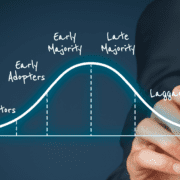Socially Responsible and Moral Investing – A Generation Making an Impact
Millennials are oftentimes chastised by older generations for their apathetic nature and the adverse impacts they may be having on the economy and society. Many of the negative stereotypes associated with the generation born between the years 1981 and 1996 are slowly being debunked, while some of the accusations are simply laughable (e.g. “Millennials are killing chains like Buffalo Wild Wings and Applebee’s”). But more recently, the generation that can’t seem to catch a break is getting positive attention for how they decide to invest.
Social Impact Investing – Returns for both the Investor and the World
The potential for high returns is not the only characteristic influencing financial investment decisions. The Millennial generation looks to align their portfolios with entities that drive positive change. That change has the potential to be seismic when you consider this statement made by Christopher Ma, Director of the George Investments Institute at Stetson University: “More than 75 million Millennials … are ready to take over an estimated $30 trillion in wealth from Baby Boomers.” The combination of more than $30 trillion in newfound wealth and an investment philosophy that prioritizes sustainability, responsibility, and morality is a recipe for meaningful change in the world.
Starting Small
The aforementioned massive transfer of wealth will take time, but Millennials are already putting their money (albeit not $30 trillion) where their mouths are. They choose to support local businesses and brands that value authenticity, local sourcing, and ethical production over big brands. They back movements that focus on social justice, diversity, and the environment. They decide to invest in companies with strong corporate governance rather than lining the pockets of the board and executives. There is a reason why social and environmental consciousness are foundational for many of today’s most successful companies (e.g. Warby Parker, Bombas, Google, Adidas).
Effect on Private Equity Real Estate Groups
If you use capital supplied by outside investors to fund new deals, there is a strong chance your investor base is aging. That means your current investors will soon be passing their wealth from parent to child, and any new investment you seek will most likely need to come from the younger Millennial cohort. Commercial real estate owners, operators, and developers need to prepare themselves for this inevitable shift, if they aren’t doing so already. The Shullman Research Center recently reported 23% of worldwide millionaires are Millennials. That’s right, 5 million Millennials already have a net worth exceeding $1 million, making them accredited investors and an emerging source of capital. So, what will it take to win the business of the new age investor?
Attracting the Millennial Investors
Appealing to the idealism of Millennials will be key to attracting their investment dollars. The World Economic Forum and Deloitte recently surveyed 8,000 Millennials and discovered that behaving in an ethical manner (65%) and improving society (62%) ranked as the generation’s top priority for business. Millennials are interested in real estate investments that drive social and economic change, such as mixed-income housing, community and healthcare facilities, and co-working office space. They are also more likely to invest in projects that strive to be environmentally-friendly and sustainable (e.g. LEED Certified).
But why are ethical and moral factors playing larger roles in the decision-making process of the younger generation? These ideas of fostering social and environmental impact are now more frequently part of the national conversations being had in news and media. And with the advent of the internet and technology, Millennials have more access to that information and those conversations than prior generations. Additionally, these topics are even being added to the curriculum at higher education institutions. As a group, they are more highly-educated than their predecessors. And what they are learning is influencing their world views. For example, the University of Miami Business School hosts student competitions focused on Impact investing. Their goal is to identify potential commercial real estate projects with the intention to generate a measurable, beneficial social or environmental impact alongside an appropriate financial return.
Transparency is vital as well. While many simply view investing as a passive and self-serving way to gain more wealth, Millennials want to see the difference their dollars are making. They want to check in on their investments at the drop of a hat. They live in a world where everything they want is on-demand, so waiting by the mailbox for the quarterly report or newsletter isn’t going to cut it. The modern wealth management and investment accounts they currently use have sophisticated web and mobile investor portals. That expectation is now starting to extend to commercial real estate industry.
To learn more about the future of Millennial investing and to see if you are ready, download our free Guide to the 21st Century Commercial Real Estate Investor!











